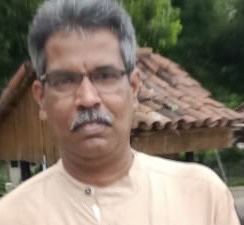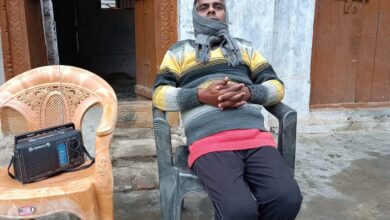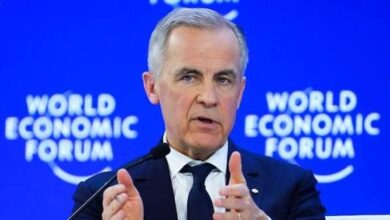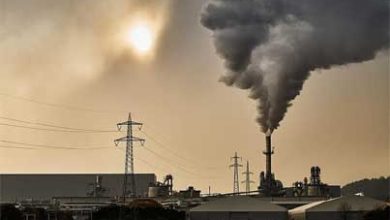The UN Treaty on the Prohibition of Nuclear Weapons and Surge in Global Nuclear Spending
Siby K. Joseph

The whole world remembers the horrors of Hiroshima and Nagasaki in the month of August and pays tribute to Hibakushas who are living victims of nuclear bombing. In India also a number of organizations and institutions have been observing “Hiroshima and Nagasaki Days”. For a quite long time ‘Indian Campaign for Nuclear disarmament (ICND)’ also engaged in the observance. This year ICND joined hands with Socio-Legal Aid Research and Training Centre for creating awareness among masses about deadly effects of nuclear bombing and the need for accelerating the campaign for disarmament in the midst of war and conflicts taking place in different parts of the globe. The President of ICND elaborated on the deadly effects of nuclear weapons and rightly pointed out that the choice before is either destroy the nuclear weapons or face extinction. I agree that it is high time we should accelerate the efforts for nuclear disarmament.
On 6 August, 2024 when we are commemorating Hiroshima day it is pertinent to note that it marks the 893rd day of the Russian Ukraine war. We are hearing the news that Russia is sending multiple missiles and drones at Kyiv as air raid warnings and the Ukraine military claimed that it shot down all 24 Russian drones launched at targets across Ukraine. As a part of a deal mediated by the International Committee of the Red Cross (ICRC) Ukraine said it conducted an exchange of soldiers’ bodies with Russia. Kyiv handed over the remains of 38 Russian soldiers while Ukraine received the bodies of 250 of their servicemen on August 2. An armed conflict has been taking place in the Gaza Strip with Israel since 7 October 2023. An intense Israeli raid of the occupied West Bank’s Jenin is ongoing. Gaza’s Health Ministry reports that at least 40 people were killed and 71 injured in Israeli attacks over the past 24 hours. In the midst of all these developments we are observing the 79th anniversary of Hiroshima and Nagasaki . It was the time in the history of warfare nuclear weapons were used. August 6 and 9 were dark days in the history of human civilization. Many treaties and agreements were signed including the Non Proliferation Treaty (NPT) after the dropping of Nuclear Bombs in Japan in 1945. But the prohibition of nuclear weapons remained a distant dream even after 75 years. A concrete step in this regard was taken only in the year 2017 with the adoption of the UN Treaty on the Prohibition of Nuclear Weapons (TPNW).
On July 7th, 2017, 122 nations, comprising almost two-thirds of the total UN membership adopted the UN Treaty TPNW which was a major landmark in humanity’s journey towards a nuclear-weapon-free future. The International Campaign to Abolish Nuclear Weapons (ICAN) played an important role in making the Treaty a reality and was rightfully awarded the Nobel Peace Prize in 2017. The treaty which prohibits the development, testing, production, possession, use and threat of use of nuclear weapons entered into force on the 22nd of January2021. As a result nuclear weapons also entered into the category of those banned lethal weapons like biological weapons, chemical weapons, land mines and cluster bombs. The ICAN is in the forefront for the ban of Nuclear weapons. It says “Nuclear weapons are the most inhumane and indiscriminate weapons ever created. They have catastrophic humanitarian and environmental consequences that span decades and cross generations; they breed fear and mistrust among nations, as some governments can threaten to wipe out entire cities in a heartbeat; the high cost of their production, maintenance and modernisation diverts public funds from health care, education, disaster relief and other vital services. Banning these immoral, inhumane weapons under international law was a critical step along the path to ending them.” It further says that Nuclear weapons have always been immoral and now they are also illegal in all respects under international law, with the UN Treaty TPNW. ” As of now there are currently 93 signatories and 70 and states parties. To put it differently, close to half of the world’s countries have joined the TPNW, either as signatories or states parties.
According to SIPRI Yearbook 2023 there are 12512 nuclear warheads in the world. Russia has the highest number of nuclear weapons, with 5,889 nuclear warheads. The United States follows behind with 5,224 nuclear weapons, hosted in the US and 5 other nations: Turkey, Italy, Belgium, Germany and the Netherlands. In 2023, the president of Belarus, Alexander Lukashenko, announced that his country had started taking delivery of Russian tactical nuclear weapons but the number of warheads in Belarus is unknown. The total number of nuclear warheads owned by Russia and USA alone constitute the major chunk of nuclear weapons in the world. In addition to nine countries possessing nuclear weapons thirty-two other states are also part of the problem, with 6 nations hosting nuclear weapons, and a further 28 endorsing their use on their behalf as part of defence alliances, including the North Atlantic Treaty Organisation (NATO) and the Collective Security Treaty Organisation (CSTO). It is interesting to note that Pakistan has more nuclear warheads compared to India. These 9 nuclear armed States neither signed nor ratified TPNW. Russia, USA, China, France, United Kingdom, Pakistan, Israel and India voted against an annual UN General Assembly Resolution since 2018. In 2018 and 2019, North Korea abstained from voting on the same resolution and it has voted against it since 2020.
Under articles 2 to 4 the TPNW allows the nuclear weapon States to join the treaty even before they have fully dismantled their nuclear weapons. In other words the treaty is in tune with the Nuclear Non-Proliferation Treaty (NPT), and does not create a new structure to undermine it. From the earlier disarmament experiences suggest that the prohibition norm comes first and destruction will follow later. Under Article VI of NPT, the nuclear weapon states have a mandatory responsibility to achieve nuclear disarmament, after a number of years. On 11 May 1995, the NPT was extended indefinitely. But there is no automatic extension of the special status granted to nuclear weapon states.
The nine nuclear-armed countries spent more than $10 billion more on their nuclear arsenals last year than the year before, according to the ICAN Report ” Surge :2023 Global Nuclear Weapons Spending ” .Between them, they pumped $91.4 billion into the nuclear arms race, or $2,898 per second.
The biggest spender is the United States of America, with the largest one-year increase. It spent $51.5 billion, more than all other nuclear-armed countries combined. Then comes China which spent $11.9 billion and Russia spent the third largest amount at $8.3 billion. The United Kingdom’s spending increased significantly for the second year in a row, to $8.1 billion.
Country Spending on Nuclear Weapons in 2023
| Country | Annual total | Increase from Previous Year |
| The United States | $51.5 billion $97,983/minute | 17.8% |
| China | $11.9billion$22,546/minute | 6.7% |
| Russia | $8.3 billion $ 15808/minute | 6.1% |
| The United Kingdom | $8.1 billion $15,331/minute | 17.1% |
| France | $6.1 billion $ 11,531/minute | 5.7% |
| India | $2.7 billion $5,057/minute | 2.5% |
| Israel | $1.1 billion $2075/minute | 2.4% |
| Pakistan | $1 billion $1,924/minute | 12.5% |
| North Korea | $856 billion $/1,629minute | 4.7% |
The twenty corporations profiled in the report earned over $30 billion for nuclear weapons related work in 2023, about a third of overall nuclear weapons spending. These companies have $335 billion in contracts lined up, in some cases, until 2040 and spent more than $123 million buying influence through lobbyists and think tank contributions.
According to the ICAN Report , during the last five years global nuclear spending has increased by 34%. We can in no way justify theft of resources from the public for nuclear armaments. In the midst of these massive expenditures to fund weapons of mass destruction by a handful of governments, nearly 100 countries have signed the UN Treaty TPNW showing the will of humanity towards a nuclear weapons free world. These governments out rightly rejected the outdated theory of nuclear deterrence and demonstrated responsible behaviour in an age of catastrophic development of use of AI in nuclear weapons programs . Some nuclear armed countries are exploring or using AI in their nuclear weapons programs, including for nuclear command and control, early warning systems, and simulation and modeling, as well as for cyber security. Therefore, to save humanity from total annihilation all countries should stand against the investment in weapons of mass destruction and work towards their disarmament by joining the TPNW. It is the duty of ICND and all peace loving people should pursue the Indian government to demonstrate its commitment to a nuclear free world by signing and ratifying the TPNW.
Note:This is an abstract of the address delivered by the author in a virtual meeting organised by “Indian Campaign for Nuclear Disarmament” (ICND) to observe “Hiroshima & Nagasaki day” on 6th August, 2024
About the Author
Dr. Siby K. Joseph is Director, International Fellowship Program on Nonviolence and heads Library and Research Centre for Gandhian Studies of Sevagram Ashram Pratishthan, Sevagram,Wardha– 442102, Maharashtra (INDIA)
Email: directorjbmlrc@gmail.com
https://sevagramashram.org.in/index.php/library-and-research-centre/




